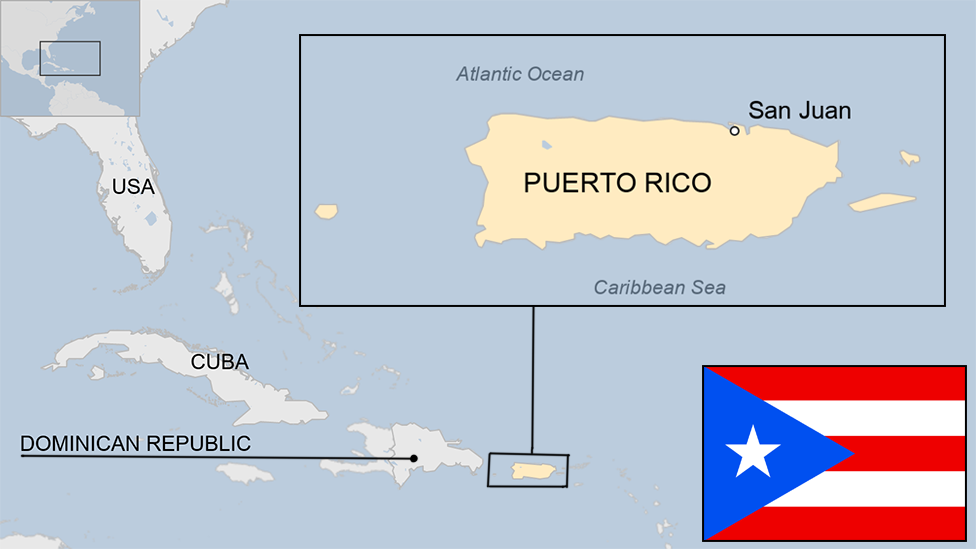Haiti country profile
- Published
This page is no longer being updated. It was last updated on 21 May 2024
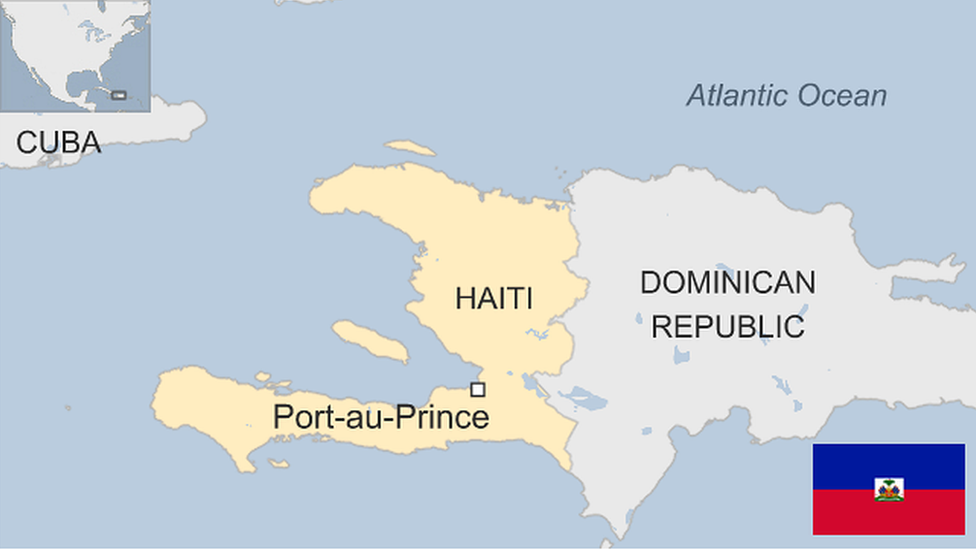
Haiti became the world's first black-led republic and the first independent Caribbean state when it threw off French colonial control and slavery in the early 19th Century.
But independence came at a crippling cost. It had to pay reparations to France, which demanded compensation for former slave owners. The 19th Century "independence debt" was not paid off until 1947. There have been recent calls for France to repay the money.
Chronic instability, dictatorships and natural disasters in recent decades have left it as the poorest nation in the Americas. A 2010 earthquake killed some 300,000 people and caused extensive damage to infrastructure and the economy.
A UN peacekeeping force was put in place in 2004 to help stabilize the country, and only withdrew in 2019.
In 2021, President Jovenel Moïse was assassinated by unidentified gunmen in Port-au-Prince. Since then the country has been wracked by economic chaos, little functioning political control, and increasingly violent gang warfare.
Read more country profiles, external - Profiles by BBC Monitoring, external
REPUBLIC OF HAITI: FACTS
Capital: Port-au-Prince
Area: 27,800 sq km
Population: 11.3 million
Languages: French, Haitian Creole
Life expectancy: 62 years (men) 66 years (women)
LEADER
Acting Prime Minister: Michel Patrick Boisvert
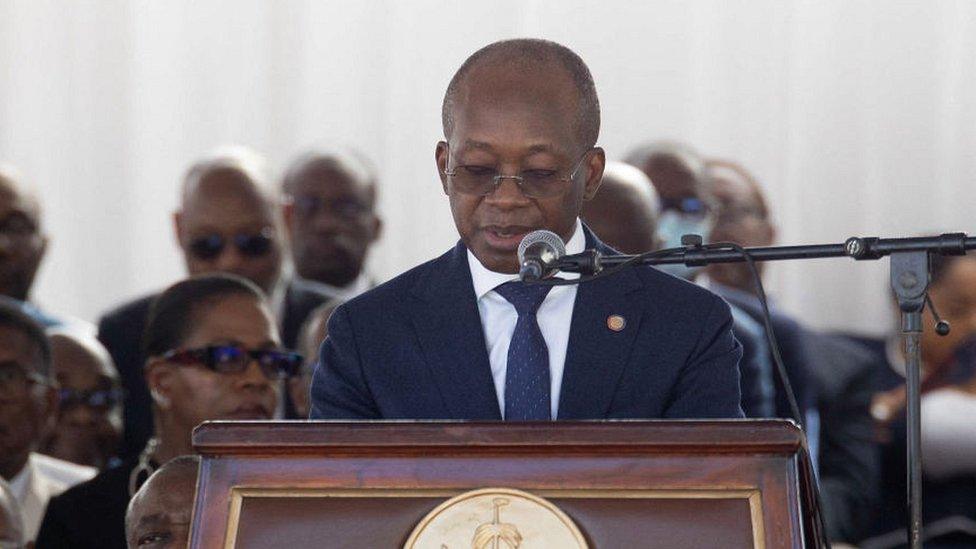
In April 2024, Haiti's prime minister Ariel Henry resigned and a nine-member transitional council was sworn in, with former finance minister Michel Patrick Boisvert serving as interim prime minister.
Mr Boisvert said the country was at a "crossroads" in its search for solutions to overcome the political crisis, which was harming the population, property and infrastructure.
The council was set up amid months of gang violence, the UN said more than 1,500 people had been killed and 800 injured in the first three months of 2024.
Its aim is to restore order and democratic rule, and is backed by other Caribbean nations and the US. It will set the agenda of a new Cabinet, form a national security council and appoint an electoral commission to pave the way for a vote.
Its mandate will expire on 7 February 2026, when a new president is expected to be sworn in.
One of Haiti's most powerful gang leaders, Jimmy Chérizier, also known as Barbecue, said he would consider laying down weapons if armed groups were allowed to take part in talks to establish the new government.
Chérizier is the most prominent figure in a loose alliance of gangs known as Viv Ansanm (Live Together), which controls around 80% of Port-au-Prince. He warned the crisis could continue if groups like his - which rail against "corrupt politicians" - were not part of a future government.
Aid groups have reported difficulties in getting food and water into the capital, warning that millions are unable to find sustenance - with some on the verge of famine.
MEDIA
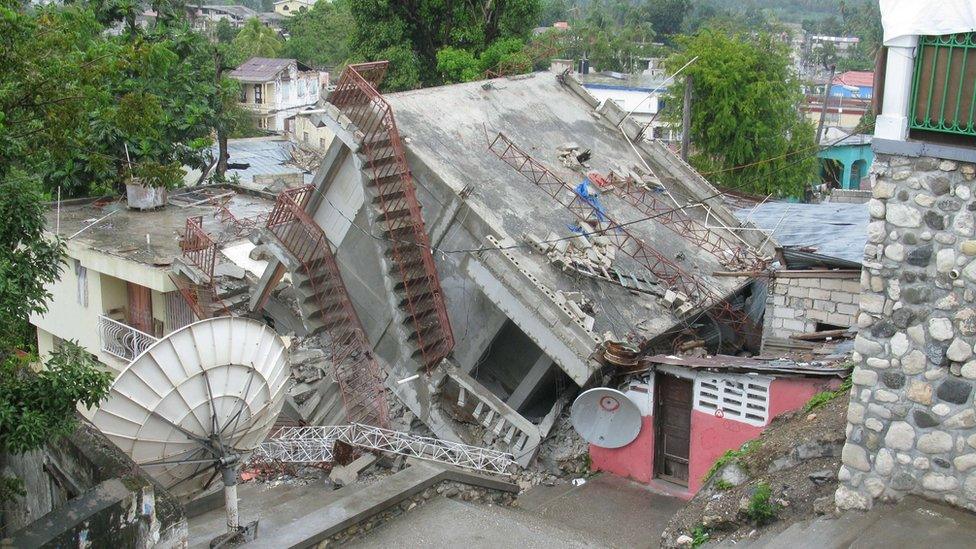
Numerous local radio stations, such as this one, were destroyed in the 2010 quake
Radio is Haiti's leading news medium and there are hundreds of local, privately-owned stations.
The media reflect a range of views but the work of journalists is hampered by threats and violence, press watchdogs say.
TIMELINE
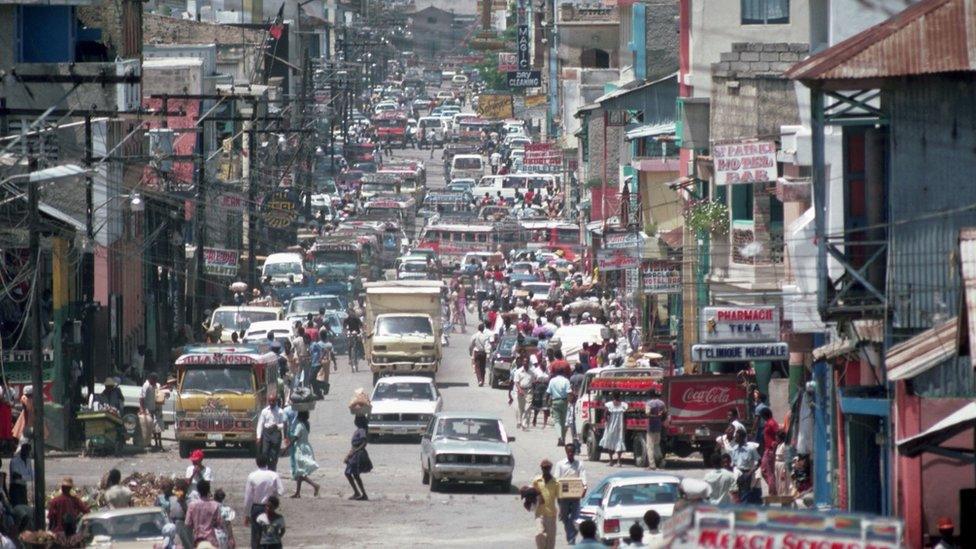
Haiti is the most populous country in the Caribbean
Some key dates in Haiti's history:
1492 - Christopher Columbus lands and names the island Hispaniola, or Little Spain.
1496 - Spain establishes first European settlement in western hemisphere at Santo Domingo, now capital of Dominican Republic.
1697 - Spain cedes western part of Hispaniola to France, and this becomes Haiti.
1801 - A former black slave who became a guerrilla leader, Toussaint Louverture, conquers Haiti, abolishing slavery and proclaiming himself governor-general of an autonomous government over all Hispaniola.
1804-06 - First Empire of Haiti. General Jean Jacques Dessalines proclaims the independent black republic of Haiti after rebel slaves defeat French troops dispatched by Napoleon Bonaparte. Haiti is the first nation ever to successfully gain independence through a slave revolt. The US refuses to recognise the new country, fearful of the potential impact the slave rebellion could have in the southern US.
1821 - After the former Spanish colony of Santo Domingo declares independence, Haitian forces under President Jean-Pierre Boyer invade and unify the island of Hispaniola
1844 - Dominican forces defeat the occupying Haitian army and Dominican Republic becomes independent.
1849-59 - Second Empire of Haiti. Haiti, under General Faustin Soulouque, makes repeated attempts to conquer the Dominican Republic.
Late 19th/Early 20 Century - Haiti sees repeated bouts of political instability.
1915 - Haiti's President Vilbrun Guillaume Sam orders the mass execution of political prisoners. He is overthrown and killed. Fearing possible foreign intervention or the formation of an anti-American government, President Woodrow Wilson sends in US troops. A pro-US Haitian president is installed with a new constitution favouring US interests.
1934 - US withdraws troops from Haiti, but maintains fiscal control until 1947.
1956-57 - Haiti undergoes severe political turmoil.
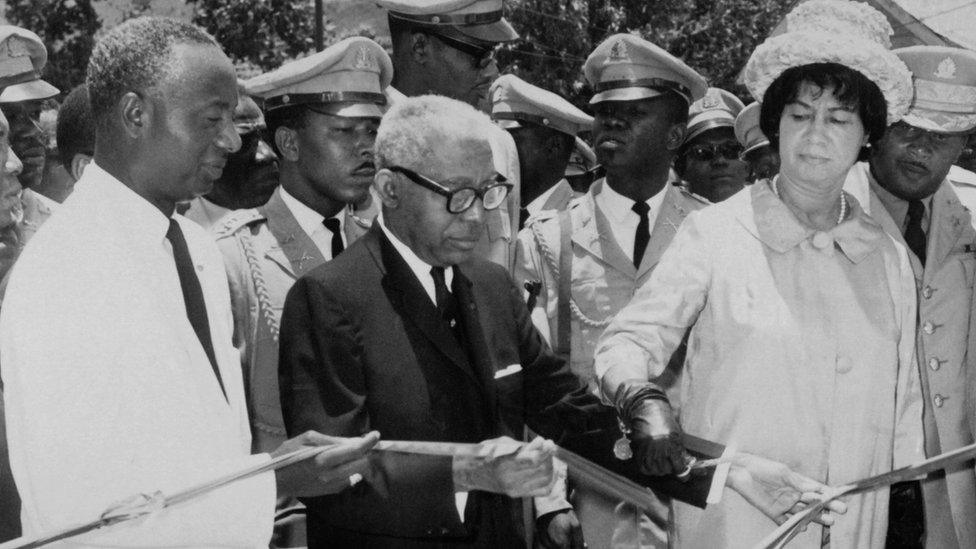
'Papa Doc' Duvalier's reign of terror was characterised by torture and killings
1957 - François "Papa Doc" Duvalier is elected president. Initially popular he turns his administration into a brutal dictatorship, aided by a private militia known as the Tontons Macoutes, who terrorize the population and political opponents. Duvalier creates a personality cult, identifying himself with Baron Samedi, one of the loa or spirits, of Haitian Vodou.
1964 - Duvalier proclaims himself "President for Life". An uprising against him in Jérémie is violently suppressed, with hundreds killed. Despite his abuses of power, his firm anti-Communism earns him US support.
1971 - Papa Doc dies and is replaced by his son Jean-Claude "Baby Doc" Duvalier. Tourism, which had collapsed in Papa Doc's time, again becomes important. But with economy decline, Baby Doc's grip on power weakens.
1986 - Baby Doc is forced into exile, ending a 29-year family dictatorship. It is estimated 40,000-60,000 Haitians were killed during the Duvaliers' reign.
1987-90 - Haiti experiences political turmoil and two coups following the overthrow of Baby Doc
1990 - Populist priest Father Jean-Bertrand Aristide is the landslide winner in a presidential election, Haiti's first free and peaceful polls.
1991 - President Aristide is overthrown by the military.
1994 - 20,000 US troops arrive to restore democracy. Jean-Bertrand Aristide returns.
2004 - President Aristide leaves Haiti again amid a rebellion. US Marines land to restore order. A UN stabilisation force is put in place.
2004-2008 - Haiti sees a series of tropical storms causing widespread death and disruption.
2010 - More than 300,000 people are killed and 1.6 million made homeless when a magnitude 7.0 earthquake hits the capital Port-au-Prince and its wider region - the worst in Haiti for 200 years.
2016 - Hurricane Matthew, the strongest to hit the region in a decade, kills hundreds in Haiti and destroys thousands of homes.
2017 - UN stabilisation force is reduced in size.
2019 - UN force pulls out of Haiti.
2021 - Unidentified gunmen attack the home of President Jovenel Moïse in the capital, Port-au-Prince, killing him. Shortly after, Haiti is struck by a magnitude 7.2 earthquake, killing 2,200 people.
2021-23 - Haiti sees continued political deadlock, economic crisis and spiralling gang violence.
2024 - Prime Minister and President Ariel Henry resigns amid worsening gang violence in Port-au-Prince.
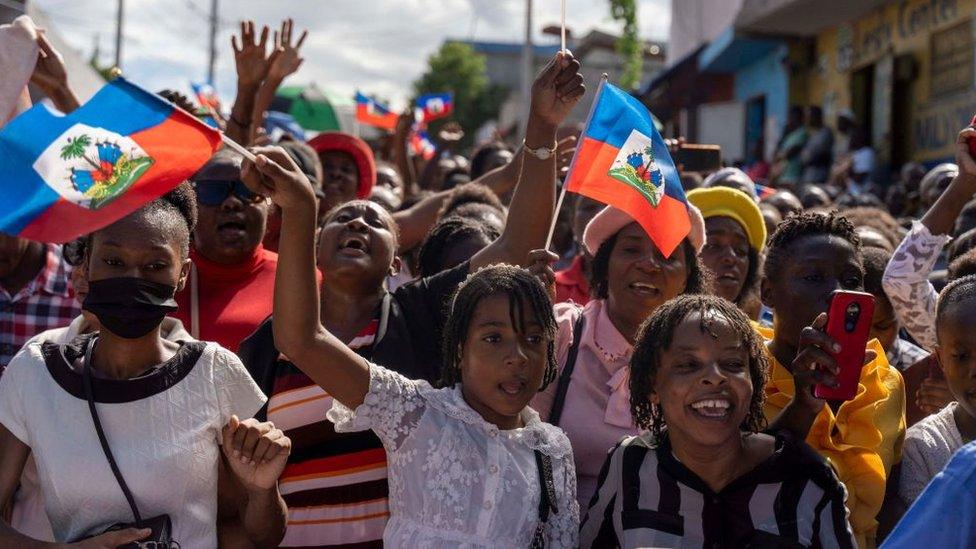
People protesting against high levels of crime in Port-au-Prince, October 2022
Related topics
- Published2 April 2024
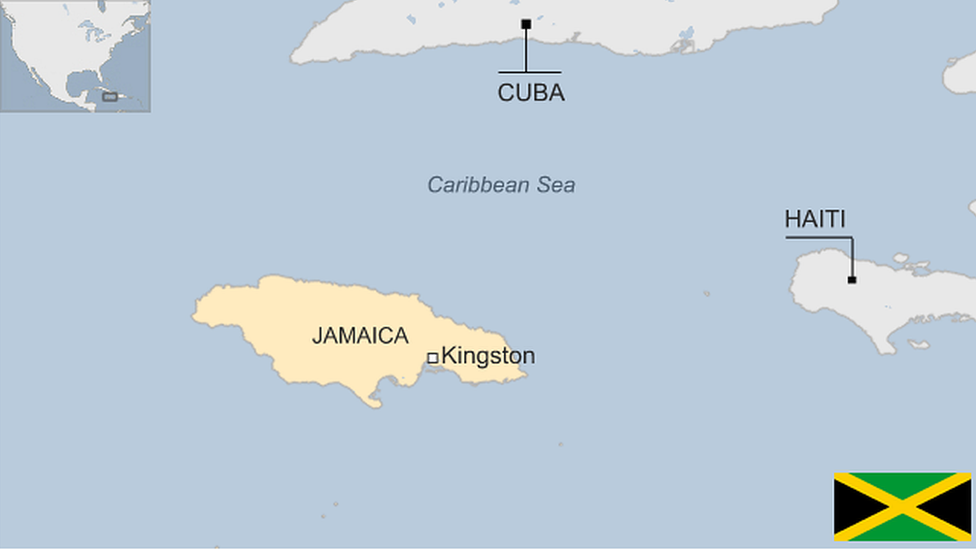
- Published29 August 2023
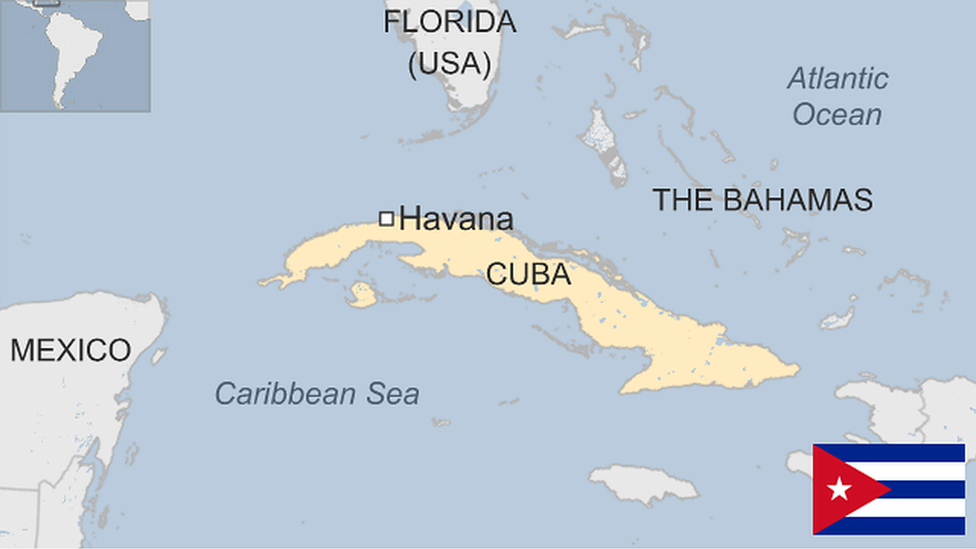
- Published4 August 2023
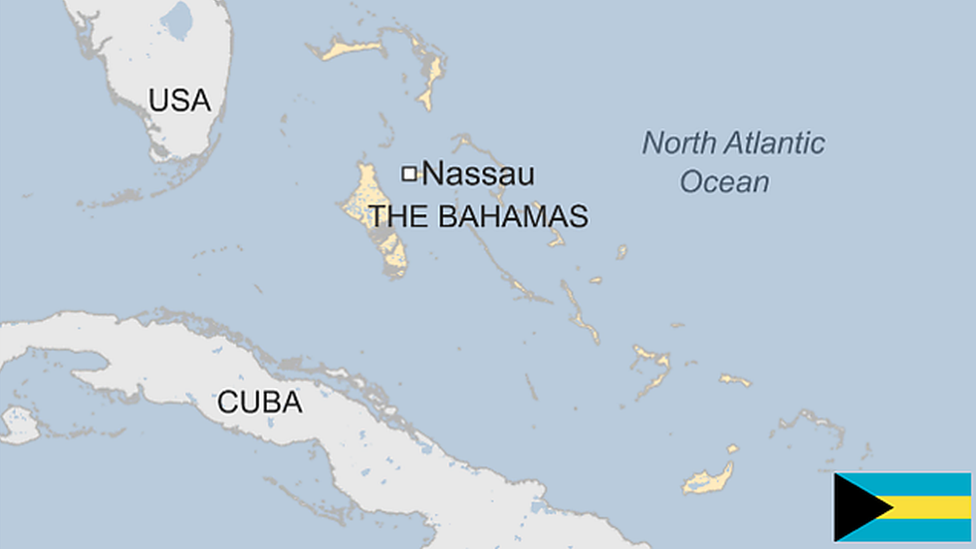
- Published31 March 2023
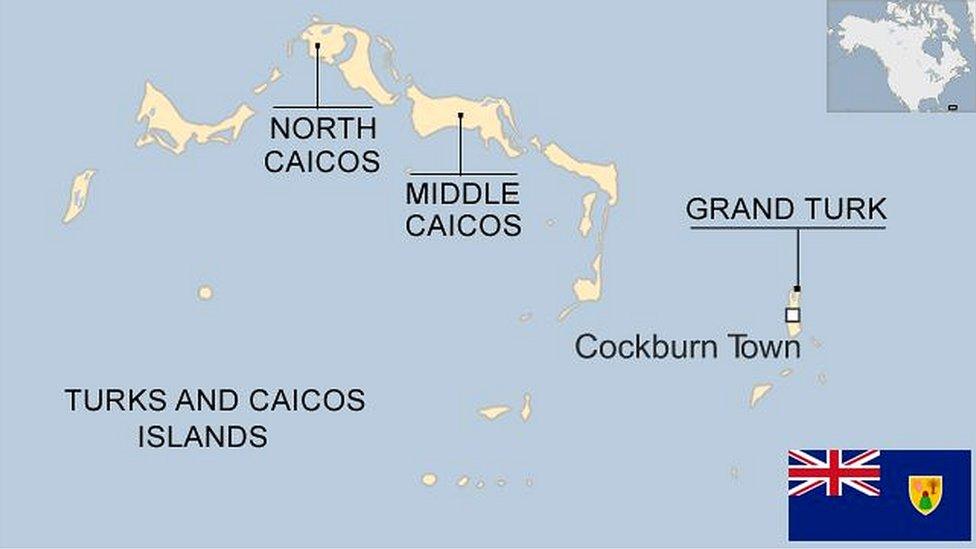
- Published9 July 2024
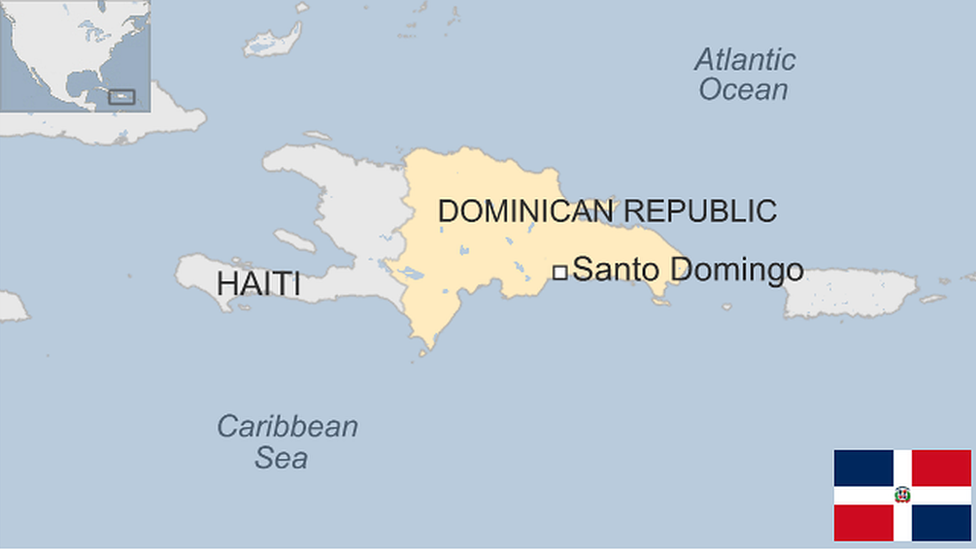
- Published11 September 2023
